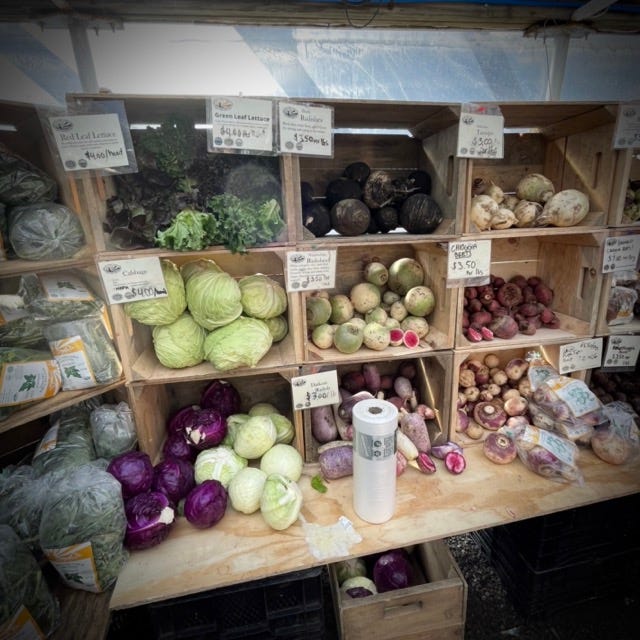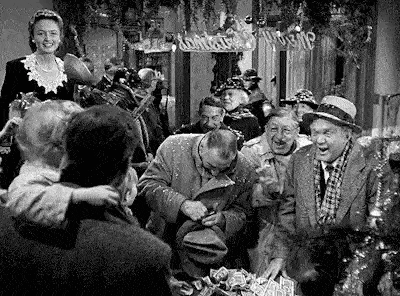Welcome to the Quarantine Creatives newsletter, a companion to my podcast of the same name, which explores creativity, art, and big ideas as we continue to live through this pandemic.
Every Wednesday, I share random thoughts and tidbits with links to let you do some exploring. I call these Wednesday Walks, as it’s the type of conversation we might have walking down a path in the woods- the topics are free flowing, sometimes related, sometimes not.
If you like what you’re reading, please consider a free subscription to have this newsletter delivered to your inbox:
Happy Wednesday everybody! We’re enjoying our first snowfall here in Massachusetts today. It was fluffy white when I went to bed last night, but it turned into a wintry mix overnight and is mostly rain now.
With just over a week before Thanksgiving, I hope you’re cooking up some good things!
Help a Farmer
I wanted to open this week with some sad news from one of my favorite local farms. Red Fire Farm actually runs two farms in Western Massachusetts, one in Montague and one in Granby. The operation dates to 2001 and they supply organic produce throughout the state.
Inspired by reading Barbara Kingsolver’s Animal, Vegetable, Miracle last year, we have been focused on sourcing most of our food locally now, which was more challenging in the winter when we were knee-deep in snow. I discovered Red Fire Farm as one of the anchors of the weekly Wayland Winter Farmer’s Market at Russell’s Garden Center, which is not far from my house.
During the coldest months of the year, Red Fire has a huge weekly setup with winter storage crops like turnips, beets, sweet potatoes, celeriac, cabbage, and onions, plus fresh greenhouse-grown greens like lettuce and kale. Because of Red Fire, we are able to eat local, organic produce in the months when other farms are closed for the winter. It’s nourishing and the “food miles” that our meals travel are much less than if we buy produce at the supermarket from California, Mexico, or even further away.
Well, sadly, Red Fire Farm is in a bit of trouble at the moment. A large part of their business is based on a Community Supported Agriculture (CSA) model, which is like a subscription service. Members pay a fixed fee at the start of the season and then enjoy the fruits of the harvest all year.
Red Fire sold many CSAs last year without a price increase, not anticipating the effects that rising fuel costs, increased labor prices, inflation, and other economic changes would have on their business. They are also dealing with weather changes, including a wet season last year that hurt their winter crops, and a drought this summer. Despite their best efforts, the farmers now find themselves operating in a deficit.
To help close that gap, Red Fire Farm is asking for community support in the form of a Go Fund Me. They are already more than half way to their goal of raising $200,000 to keep the farm open. Here’s their video about the situation:
I share this in part because I want folks in Massachusetts to know about this amazing farm, but also because I want readers everywhere to understand just how fragile small, local businesses can be. They can do everything “right” and still stumble because of factors outside of their control. They simply don’t have the same resources available as large agribusiness firms or supermarket chains.
It’s hard for me to imagine a winter without Red Fire Farm, and I hope that their customers and neighbors can rally behind the farm and help keep it afloat (we made our contribution this week).
This campaign reminds me a bit of the ending to It’s a Wonderful Life. Whether or not they are able to reach their goal, nearly 800 people have already made donations ranging from $10 to $4,000 to keep an important part of our community going. That counts for something big in my book.
If you’re interested in making a donation, visit the GoFundMe page for more details.
Anti-Social

Since Elon Musk took over Twitter a few weeks ago, I’ve been starting to think maybe the time has come to stop being as active on social media.
Twitter began as a work resource for me. It was a great way to connect to possible story ideas and experts in the field. When I launched my podcast, many of the first guests were direct connections from Twitter.
I’ve been trying to be more present with my family and spend less time scrolling on phones, and with this new ownership, it seems like a good time to reassess where I spend my time online and how connected I really want to be.
Twitter has become a bit chaotic under Musk’s leadership. Prior to the sale, the moderation tools were fairly strong, and it became a relatively reliable source for breaking news.
There was also a verification system in place that required people in the public sphere to prove their Twitter account belonged to them and not an imposter. My own account has been verified for many years, and I had to submit a copy of my driver’s license and links to show I was employed where I said I was to receive the blue check mark. It was a bit fun tagging celebrities, politicians, or companies and receiving a genuine response from somebody that was the “real deal” (or at least, were authorized to speak on their behalf).
However, the policy changed and blue check marks were recently being given to anybody who pays to subscribe to Twitter Blue, no identity check required. As Geoffrey A. Fowler recently discovered for The Washington Post, this new system led to impersonation of public figures (including two examples done specifically for the story). New Twitter Blue subscriptions have been temporarily halted amid the chaos, but Musk seems determined to make all verified public figures pay, at least based on how he’s tweeting.
I’ve been reluctant to fully write off Twitter and have not been quite ready to eulogize it, but I wanted to share this “Twitter tribute” from Kristin Du Mez, which I think accurately reflects my feelings towards the demise of the platform. Take a read:
Continuing with the Titanic metaphor in Kristin’s piece, this about sums up my thoughts on social media at the moment:
#NoNewClothes- Week 4
As part of the challenge to not buy any new clothes this year, inspired by Amory Sivertson, I’ve been thinking about ways that we can stretch our current clothes further.
I wear jeans practically everyday. At one time, I tried to rotate in a few khakis or dress pants, but I’m pretty much full-time denim now.
I learned an amazing tip about making denim last longer from Patric Richardson, host of The Laundry Guy and author of Laundry Love. Patric was a guest on the podcast last year. (He also, coincidentally, just celebrated a milestone birthday yesterday, so please wish him a happy birthday!)
Patric’s advice: to keep jeans from fading, soak them in warm salt water overnight when you first buy them. I can’t quite explain the science behind it, but somehow, that salt bath helps jeans retain their color. I prefer dark wash jeans, so this tip has allowed my jeans to last much longer than before!
One other way to make jeans last longer: wash them less. Levi’s actually encourages going ten wears (or longer before laundering your jeans! This may not be practical when doing muddy yard work, but it’s totally possible with normal, daily use.
Other Wednesday Walks
If you’d like to catch up on past episodes of the Quarantine Creatives podcast, they can be found on Apple Podcasts, Spotify, or wherever you listen.
Please consider sharing this with a friend that you think might enjoy it, or better yet, share it on social media so you can tell hundreds of friends!
If you’ve missed past issues of this newsletter, they are available to read here.
Stay Safe!
Heath











Another suggestion to keep denim from fading is to use vinegar in the rinse cycle instead of fabric softener.